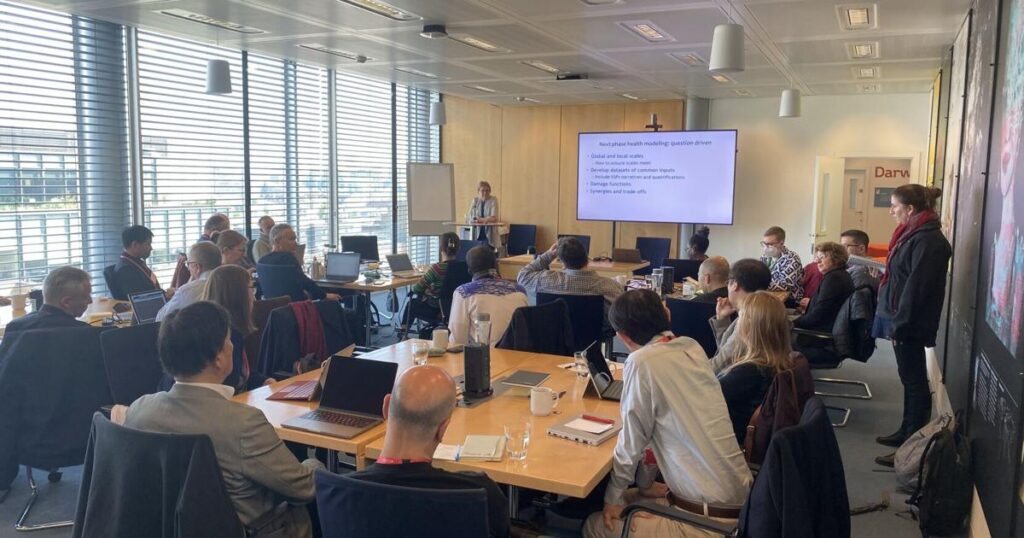Editor’s note: “Research Spotlight” is a biweekly column showcasing UW centers, institutions, and labs that significantly contribute to their fields. This installment highlights the Center for Health and the Global Environment, a team committed to integrating climate resilience into global health strategies.
In 2021, the Pacific Northwest was struck by an unprecedented heat wave, resulting in 159 heat-related deaths in Washington state. These incidents, primarily preventable, underscore the urgent need for climate resilience strategies.
At the University of Washington, the Center for Health and the Global Environment (CHanGE) is actively working to avert such tragedies. Comprising researchers, educators, and practitioners, CHanGE focuses on embedding climate resilience into public health initiatives. Their areas of study include heat impacts, vector-borne diseases, nutrition, air pollution from wildfires, mental health, and water-related illnesses.
CHanGE operates across local, national, and international levels, aiming to equip future professionals with the skills needed to manage climate-induced health challenges effectively, such as those seen during the Seattle heat wave.
Kristie Ebi, a professor with over three decades of experience in climate change and health, founded CHanGE in 2014 at UW. Her work spans continents, impacting policy and assessment efforts in regions like Central America, Europe, Africa, Asia, and the Pacific.
“I am fortunate to, across my career, have worked on all aspects of climate change and health,” Ebi said. “So I have some amount of expertise in a broad range of areas and use my connections with researchers around the world and the knowledge I’ve gained to help UW provide useful and usable information to increase resilience and sustainability in the health sector and the changing climate.”
Ebi collaborates with health ministries in lower- and middle-income countries to create strategies that enhance climate resilience. Her work involves conducting assessments to gauge a population’s vulnerability to climate change and devising suitable interventions.
“There are parts of Africa where the most urgent need is undernutrition. There’s other parts of the world that have different needs. In many high-income countries, it’s heat and extreme weather and climate events,” Ebi said. “But, it also depends on whether you are talking about today or in the future, because the future will be fundamentally different, and looking at risks — when they could arise, how extensive they could be — is part of what we do to help inform decision-making.”
One of Ebi’s first actions after establishing CHanGE was to recruit Dr. Jeremy Hess, a professor in emergency medicine and environmental health sciences. Hess spearheaded the development of the Climate Health and Risk Tool (CHaRT).
Developed in partnership with EarthLab, CHaRT is an interactive resource for community members and policymakers to forecast and plan for climate-related health risks. It integrates diverse datasets to create models, such as the WA Legislative Districts Heat Health Risk model, which identifies the hottest 30 days from 1991 to 2020 in Washington.
CHanGE emphasizes community-based solutions, collaborating with various groups, including the Swinomish Tribe. Hess helped develop the CDC’s Building Resilience Against Climate Effects framework, adapted for Indigenous communities as I-BRACE. The Swinomish Tribe’s focus on human-environment relationships has influenced CHanGE’s holistic approach.
This spring, students can enroll in ENVH/GHGH 479/579: Climate Change and Public Health Practice, taught by Hess, to learn about climate-resilient health systems. CHanGE also offers a graduate certificate in climate change and health, providing students opportunities to work with health departments and NGOs.
Reach reporter Sarah Pabin at science@dailyuw.com. X: @sarahpabin. Bluesky: @sarahpabin.bsky.social
Like what you’re reading? Support high-quality student journalism by donating here.
Original Story at www.dailyuw.com
